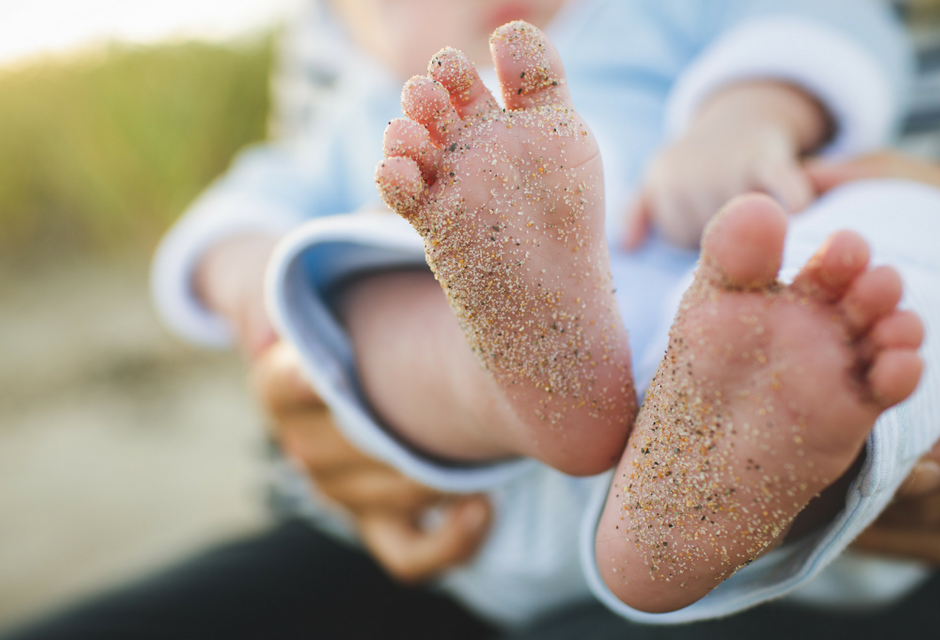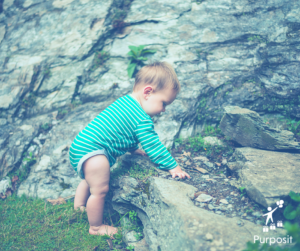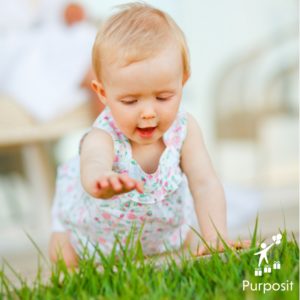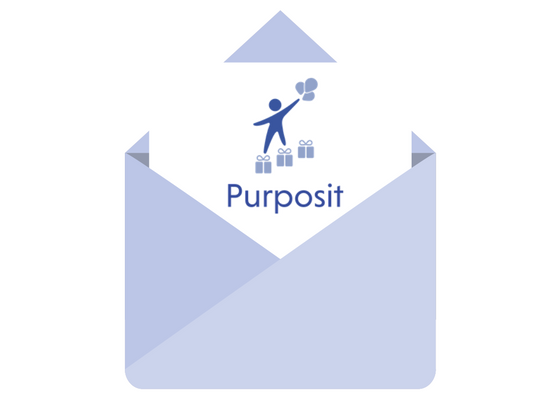Play, together with feeding and sleeping, is one of the three key pillars to healthy baby development. Playtime allows babies and young children to use their creativity and imagination, while also developing physical, cognitive and emotional strength. Put simply, play is essential for healthy brain development!
But the importance of play doesn’t mean that lots of toys and gadgets are essential for babies. Many of the toys marketed to parents and caregivers of babies and young children can have a negative impact on brain development due to overstimulation. This can result in sensory overload for your baby, causing agitated crying, unsettled behaviour and insomnia.
Key warning signs of overstimulation are baby turning their head away from you, jerky movements, excessive crying, clenched fists and waving/kicking arms and legs. Other signs may include appearing sleepy or hungry and generally irritable and difficult to care for.
When should you start playing with your baby?
![]() But despite the risks of overstimulation, playtime should form part of your baby’s routine right from day one. But this doesn’t necessarily mean toys!
But despite the risks of overstimulation, playtime should form part of your baby’s routine right from day one. But this doesn’t necessarily mean toys!
For the first few months of their life, your baby’s favourite toy will be YOU. Every day care activity is an opportunity to talk to your baby, sing songs, and gentle play.
This philosophy is supported by the renowned infant development expert Magda Gerber, who passed away in 2007. Magda established Resources for Infant Educators (RIE) in 1973, a non-profit organisation that aims to give babies more independence and respect through allowing them to be initiators of play, explorers and self-learners.
RIE encourages parents and caregivers to provide the following for their babies:
- An environment that is physically safe, cognitively challenging and emotionally nurturing
- Time for uninterrupted play including freedom to explore and interact with other infants
- Involvement of the child in all care activities to allow the child to become an active participant rather than a passive recipient
- Sensitive observation of the child to understand their individual needs
- Consistency, clearly defined limits and expectations to develop discipline
Do you notice what’s NOT on the list? That’s right, lots of toys, gadgets and expensive equipment.
Instead RIE encourages the following when playing with your baby:
- COMMUNICATION: Talk to your baby to allow them to participate actively in a relationship with you, learn our language and find out about the world around them
- FREE PLAY: When you value your baby’s choices to gaze in a particular direction or explore their body, simple objects or toys in a small space we provide, your baby learns the joyful habit of self-directed play
- KEEP IT SIMPLE: A peaceful, predictable environment helps babies to adjust to life outside the womb, prevents overstimulation and builds confidence
- OBSERVING: Take a step back to observe your baby to understand their needs, discover their personality, as well as their likes and dislikes.
If babies don’t need toys, what should parents do?
Magda’s philosophies give parents reason to pause and think about the number of toys you invest in when you first have your baby. Of course, many toys are bought by well-meaning friends and loved ones to celebrate the life of your child.
This is where something like Purposit really shines. Parents and parents-to-be can use the app to invite friends and family to chip in for meaningful gifts or invest in the future education for their children. Instead of a house full of noisy plastic toys that your child is not developmentally ready for (hello walker’s I’m looking at you!), you can invest in toys that your baby will get more meaningful use of and that will enhance their development at a stage when your baby is ready. Or you can use the money to pay for age appropriate activities like music classes, gymbaroo or swimming lessons.
Less clutter, less waste and a happier, more relaxed baby? Sounds like a win don’t you think?
If you have any feedback or stories about your experiences with your little ones, share with us. We would love to hear them!
This article was written by baby expert Jen Hamilton, who is the creator of the innovative early parenting WOTBaby App, a step-by-step troubleshooting guide for parents to help care for their 0-6-month-old babies. For more info on Jen, check her bio below.
Like our Blog? then check out our App!
Purposit is a free, easy and secure platform where parents fund meaningful gifts for their kids with the help of friends and family.




